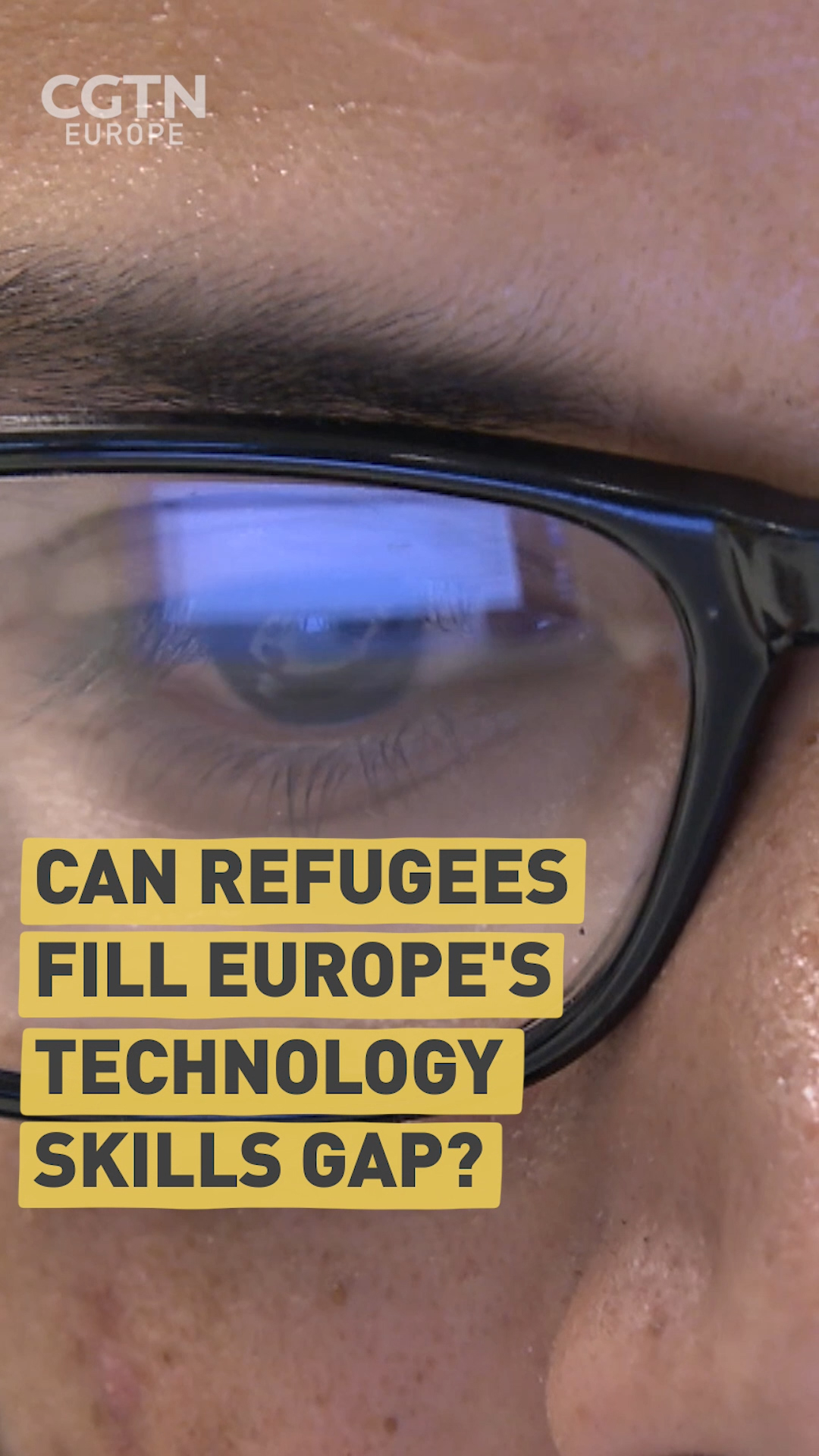03:05

Behnaz, a Code Your Future Graduate, says for most refugees, "the only job they can have is being a driver for Amazon, being a delivery person although some of them had degrees from their country."
"Some of them were even programmers but when they came here, they were not accepted," she adds.
The idea of this training program, and similar ones, is that when they are allowed to work, they can enter the jobs market with much-needed skills.
As well as helping refugees and asylum seekers find jobs, the program also helps plug a gap in the UK jobs market. There's a shortage of skilled workers in the tech sector – a problem the organization Techfugees is working to tackle.
Mike Butcher, Techfugees founder, says: "The real issue is not refugees being a drain on society – it's about how we can make refugees the new entrepreneurs, the new skilled people that we need in our society. There are a million jobs going in the UK right now in the tech sector."
Refugees and asylum seekers have already had to overcome many obstacles before arriving in the UK. Charities like this are aiming to go some way to offer a much-needed sense of belonging – as well as investing in people and their new country's future.

Techfugees is working to help refugees learn technology skills. (Credit: CGTN)
Techfugees is working to help refugees learn technology skills. (Credit: CGTN)